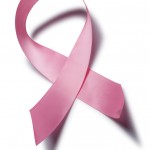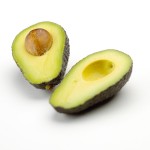Protein, what is it?
A protein is a combination of amino acids linked together. As many as twenty different amino acids make up proteins and each protein has a unique, genetically defined amino acid sequence which determines its specific shape and function.
What does protein do?
20% of our bodies is from protein. Protein is a major component of muscles, skin, tendons, blood vessels, hair, cores of bones and teeth. Protein helps us grow, heal wounds, and make up collagen – the connective tissue that gives your body its shape. Protein also keeps our immune system functioning properly and protein helps our bodies produce enzymes which help in many different functions, like digestion. Are you convinced yet that protein is exceptionally important to our health?
How Much Protein do we Need?
 The Institute of Medicine at the National Academy of Sciences set the adequate amount of protein as follows:
The Institute of Medicine at the National Academy of Sciences set the adequate amount of protein as follows:
0 – 6 months old: 9.1 g
6 months – 1 year: 13.5 g
1-3 years old: 13 g
4-8 rears old: 19 g
9-13 years old: 34 g
Males 14-18 years old: 52 g
Males 19+ years old: 56 g
Females 14+ years old: 46 g
Pregnant and lactating women: 71 g
Athletes or people that do intense exercises might need higher amounts of protein so they can build and repair muscle faster. Some nutritionists might suggest 0.8 g of protein for every kilogram of body weight daily.
Along with fat and carbohydrates, protein is a “macronutrient,” meaning that the body needs relatively large amounts of it. The body does not store protein, and therefore has no reservoir to draw on when it needs a new supply.
Cooking of Protein
Overcooking foods containing protein can destroy many of the health benefits of proteins. Please read a great article on the healthiest ways of cooking!
Is there such a thing as Too Much Protein?
You have probably heard of many weight loss diets that recommend high protein low carbohydrates foods! Nutritionists want you to be careful.
When people eat lots of protein but few carbohydrates, their metabolisms change into a state called ketosis. Ketosis means the body converts from burning carbs for fuel to burning its own fat. When fat is broken down, small bits of carbon called ketones are released into the bloodstream as energy sources. Ketosis, which also occurs in diabetes, tends to suppress appetite, causing people to eat less, and it also increases the body’s elimination of fluids through urine, resulting in a loss of water weight. Let’s see what happens when we eat protein. The body produces ammonia when it breaks down protein. No one knows the long-term risks of higher levels of ammonia in the body. Another concern is that there is evidence to suggest that people who eat high-protein diets typically excrete excess calcium in their urine. Too much calcium loss could lead to osteoporosis long term.
The American Heart Association warns: “Reducing consumption of carbs usually means other, higher-fat foods are eaten instead. This raises cholesterol levels even more and increases cardiovascular risk.” The AHA also notes that by concentrating on protein sources and skipping carbs, dieters may be getting too much salt, and not enough calcium, potassium, or magnesium, which are typically found in fruits, vegetables, and whole grains.
Not all Protein is created equally
The type of protein you eat may play a huge role in your health.
If you eat large quantities of processed meats such as hot dogs, sausages, and deli meats, or fatty proteins, you have increased risk of type 2 diabetes, cardiovascular disease, and cancers.
List of best sources of protein
This is a list of protein that has the most protein at the lowest caloric ratio, meaning the highest protein and the lowest calories at the same time:
 Cod
Cod
Tuna
Shrimp
Venison
Turkey
Scallops
Chicken
Beef (Grass Fed)
Lamb
Spinach
Mushrooms
Salmon
Asparagus
Tofu
Broccoli
Soybeans
Low Fat Cheese
Yogurt
Eggs
Collard Greens
Cauliflower
Lean Protein
Here is a list of protein that is lean.
Oatmeal
Egg Whites
Soy
Cottage Cheese
Black Beans
White Meat Chicken
Tuna, Cod or Sardines
If you eat a lot of beef, eat grass fed beed
So, make sure you have enough protein every day but make sure you have the right type of protein for best health. If you find yourself not being able to eat that much protein on a daily basis, you supplements to make up the difference!














